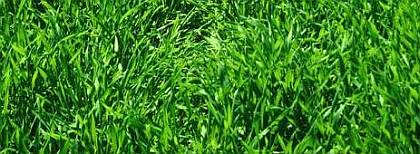A BROWN LAWN:
From Spraying Common Weed Killer?
Can a brown lawn recover from a bad spray job?
Sadly, this scenario arises all too frequently. People make mistakes with the choice of a product, the mixture, the application, and more.
Learn what can you expect in such a situation, in this entry from the Question & Answer series.
QUESTION From Reader:
Re/ a Brown Lawn: I used Ortho Weed B Gon to kill Dandelions on my front lawn and it turned it brown. Have I killed the grass or should I wait to see if it will reverse itself? I thought about trying some nitrogen but have not as yet. Can I reverse this and get my lawn green again. Will time take care of it? I live in Kansas City, Kansas.
Garden Counselor ANSWER:
When a brown lawn results from a lawn spray application, several things are possible. Let’s go through what might have caused the trouble before we figure out what can be done with it:
1. My immediate suspicion is that your type of grass was incompatible with this weed killer. Do you know what variety of grass is in your lawn?
For example, St. Augustine might be more affected by this chemical than a fescue grass. Ortho Weed-B-Gon is a product with a good reputation, but it generally has a damaging effect on any broadleaf plant, weed or not.
Dichondra is another example of a lawn that would turn brown after being sprayed.
2. Another problem could be the strength or combination of mixture that you sprayed.
What amount of chemical did you use, in how much water?
Also, did you mix any other chemicals with it?
Were any other products applied to the lawn recently, either before or after this Ortho product?
3. Environmental factors can contribute. Extremely hot temperatures can over-accentuate the stress caused by a chemical application. Also, very young grass is more susceptible to the effects of herbicides. Do either of these apply?
4. A compromised sprayer would be another factor to evaluate. Was the same sprayer used previously for any other chemicals, like Round-Up, bleach, paint thinner, insecticides, anything at all? (Even if you are sure you rinsed it out thoroughly, let me know.)
If you can respond with answers to these, I can be more definite in my answer about what to expect. in addition, it would help to know how long ago did you apply the weed killer, and how soon did the grass react and turn brown?
In the meantime, this next point is critical for anyone having problems with a brown lawn.
5. Do NOT apply any fertilizer of any type to a brown lawn.
If the grass has been only injured, not killed, it will need time to recover on its own. Any stimulant like nitrogen will stress the plant further and could be the final blow that damages it beyond the point of recovery.
The best thing you could do immediately is to water the brown grass sufficiently to flush out any remaining chemicals and be patient. (Don't do this if the ground is already saturated from an abundance of rainfall.)
FTC Disclosure:
If you make a purchase via a link on this site, I may receive a small commission on the transaction - at no added cost to you.
BROWN LAWN Question (continued)
The Follow-Up Response & Reply
Homeowner:
Thank you for your reply and answer. I found out that while I was at work my neighbor also applied something else to my lawn. Today I went over to her house to find out what it was. She used a product called Razor Pro that she applied to my lawn. Again, I thank you and await your reply.
Garden Counselor:
Unfortunately, this is not a good development, in fact, probably the worst news you could discover as a cause of your brown lawn. Let me explain what you are up against.
Razor Pro is a glyphosate product, which is a non-selective herbicide, meaning it kills everything that it contacts. The prognosis is not good, but it could depend on the ratio she mixed before spraying. Razor Pro is the highest concentration typically available for a glyphosate product, at 41%.
This can lead to mixing mistakes if a person has previously purchased another brand of glyphosate (like Round-Up) that may have had a lower concentration. For example, if it was 18% active ingredient, it would have suggested a higher ratio of product to water. This type of error happens quite often.
The problem is compounded when a homeowner uses the ‘Pro’ label, because it is intended for professional use. The directions on the label are more difficult to understand than a typical retail version, because it is usually mixed by a landscape professional for a larger application area. The appropriate dosage for a small area is not easily determined by the average, occasional user.
Here is the reason your brown lawn occurred so rapidly and completely. Glyphosate works by inhibiting the plant's ability to manufacture the amino acids that function as its food source. So the plant basically starves over a period of time, a very short time for a lawn.
Is it final? In most cases it is a permanent kill for soft tissue plants, especially grass. (Woody type plants sometimes have enough built up reserves to hang on and eventually recover.) The only hope you have is if the neighbor mixed a very mild dose.
The only way to know is waiting to see if it recovers. Be patient for a week or two more, and check for signs of life in numerous locations across the brown lawn. Here is how you do that:
Pull back the dead blades of grass, going all the way down to the crown of the grass plant (right above the soil level). You are looking for a sign of any tender, succulent tissue there. It would be white or creamy color.
If present, it could take several more weeks before starting to pop out and turn green. (If the growing tip, the soft tissue at the crown, is already dried up, it will not recover.)
I doubt that you will find a fortunate outcome, as there will likely be a certain portion of brown lawn that remains, even if part of it recovers. So it probably comes down to what your options are for getting a new lawn installed, that will determine whether or not you want to take the time to wait.
The longer you wait, the closer you get to hot weather which makes it more difficult to start a new lawn, and you'll be missing out on the use of the yard that much longer.
I’m sorry that you had to receive such a disheartening answer. Thanks for bringing your inquiry regarding a brown lawn to the Garden Counselor Lawn Care site.
Editor’s Note to All Website Readers:
Please be aware of two important considerations regarding spraying any lawn and garden chemicals:
I. Never apply any garden product to a neighbor’s yard, especially when you have not checked with them previously. In spite of your wonderful intentions to be helpful, I hear regularly that someone made a mistake (this happens way too often).
In addition to the possibility of causing damage to property (often to sensitive or very valuable plants), some people cannot tolerate chemicals. They may be affected tremendously by your action and nothing can be done to correct it.
Chemicals are never safe. Using chemicals (this can include fertilizers) inappropriately is a serious matter with potentially harmful consequences.
II. Spraying the wrong product or a bad mixture is a frequent problem. You would not believe how often I hear about this.
Always check a label to be sure it will deliver only the result you expect and want.
Never use a product that is missing a label on the container.
Just as important is to follow the directions for mixing. Don’t second guess the manufacturer of lawn chemicals if you want to avoid the surprise of a brown lawn, or worse!
Thanks for listening — G.C.
RELATED ARTICLES
Brown Grass Questions & Answers
Planting Grass for tips on reseeding a lawn

BRING ON SPRING!
A Stronger, Greener Lawn
Starts Now...
with help from DoMyOwn
Products * Videos * Schedules * Guides




